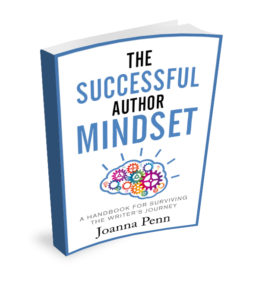“Why can't you write something nice?”

“I've got a great idea, maybe you can write about it and we'll split the money.”
“I like this chapter but your main character is just so wrong.”
“Maybe you should just rewrite the whole thing.”
“Why are you even bothering to write? It's a waste of time.”

Have you heard these words or something like them from your family, friends or writers' group? How did that make you feel? Is this really useful feedback?
When you start out writing, your inner creative is just a little seedling with tiny leaves above the earth, peeping out into the air for the first time. It's very easy for that seedling to be crushed into the ground by harsh words or judgment that leave it bruised and battered and unable to rise again.
You have to care for it, protect and nurture it until it becomes a little stronger. Then the wind and rain can come and it will bend but not be crushed. It will even become stronger as it resists the push of the weather, but still, it will be vulnerable.
You need to care for your creative self as you would any fragile new life.
Our family and friends may love us but they are unlikely to understand our need to write, unless they are creatives themselves. The range of responses to the writing life range from enthusiastic support of our endeavors, through disinterest and uncaring, all the way to shaming, or even verbal abuse.
Try not to take it personally. It may be a reaction to an unfulfilled creative longing within them, or just not understanding why this is important to you. It's tough, but generally our family and friends are not our potential readers.

These groups are generally full of unpublished writers who may not even read the genre you're writing in. They pull apart each other's work and a new writer faced with a load of untargeted feedback from too many other people is likely to lose their way in the process.
Antidote
Accept that your family and friends may not be the best people to support your writer's journey. They may never read your book, and if they do, they might not like it anyway. This is hard to hear but it's best to be prepared.
Examine the groups you're in and the friendships you have around writing.
- Are they helping that fragile seedling to flourish?
- Or are they stomping on your growth?
It might be better to pay a professional editor within your genre to critique and improve your work, and join an informal writers' group for social interaction and support, not for critical feedback on your writing.
I have an almost entirely different friendship group now than I did back in my corporate consulting days. I've changed, my life has changed and I have little in common with the friends I once hung out with. You have to clear space for something new to emerge and it may be hard, but sometimes, you have to do that if you want to grow.
“Poisonous people do not deserve your time.” Timothy Ferriss

